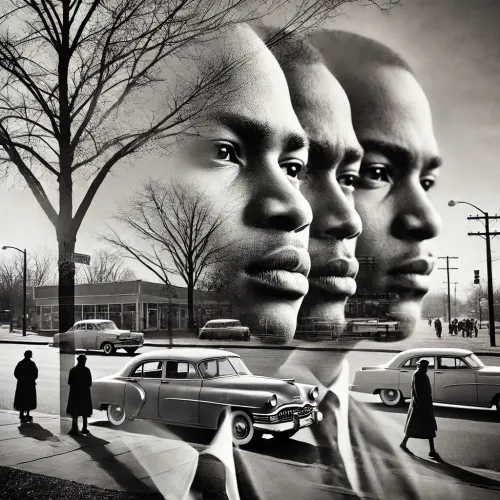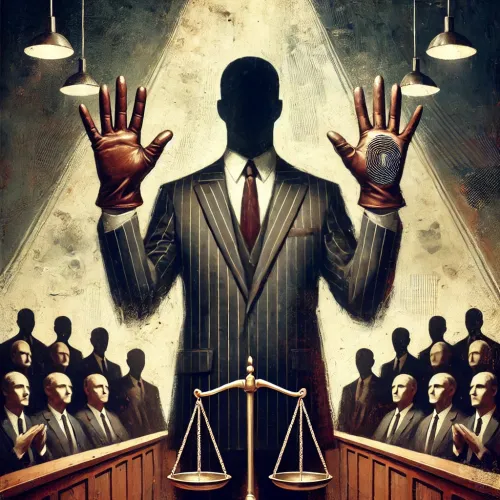The American justice system, once built around the principle of trial by jury, now operates overwhelmingly through plea bargaining. This practice, where defendants plead guilty in exchange for reduced charges or lighter sentences, resolves more than 90% of criminal cases, leaving jury trials as a rarity. While plea bargains are often defended as efficient and pragmatic, they have a darker consequence: systematically bypassing jury nullification, a vital tool for resisting unjust laws and ensuring that legal outcomes reflect societal values.
Jury nullification occurs when jurors acquit a defendant despite evidence of guilt because they believe the law is unjust or its application is inappropriate. Historically, nullification has played a critical role in shaping justice. From acquittals under the Fugitive Slave Act to refusals to convict during Prohibition, juries have used their power to challenge oppressive laws and signal the need for change. Today, however, this mechanism is rendered largely obsolete by the prevalence of plea bargaining.
The plea bargain process effectively sidelines juries by resolving cases before they ever reach trial. Defendants, often under immense pressure from prosecutors, agree to plead guilty to avoid the risk of harsher penalties at trial. This coercion is particularly pronounced in cases involving mandatory minimum sentences or overcharged offenses, where the disparity between a plea deal and potential trial outcomes can be staggering. For many defendants, especially those from marginalized communities, the promise of a reduced sentence outweighs the risks of asserting innocence or seeking a trial.
By steering cases away from jury trials, plea bargaining eliminates the opportunity for jurors to weigh the fairness of the law itself. This shift consolidates power in the hands of prosecutors, who determine charges and negotiate pleas with little oversight. The jury, once a democratic check on the legal system, becomes irrelevant. This erosion of the jury’s role undermines its purpose as a safeguard against government overreach and systemic injustice.
The consequences of bypassing jury nullification are profound. Laws that lack public support or moral legitimacy, such as harsh drug policies or laws targeting nonviolent offenders, continue to be enforced unchecked. Plea bargaining perpetuates the enforcement of these laws by removing the jury’s ability to resist them. If cases were more frequently brought to trial, juries could send powerful messages to lawmakers by refusing to convict under unjust statutes, as they have done throughout history.
Critics of jury nullification argue that it introduces inconsistency into the legal system and undermines the rule of law. However, plea bargaining introduces far greater inconsistencies. Prosecutors wield enormous discretion, leading to wide disparities in charges and sentencing based on geography, race, and socioeconomic status. These disparities erode trust in the justice system and deepen systemic inequities.
Moreover, plea bargains undermine the principle of due process. Defendants are often pressured to plead guilty without fully understanding their rights or the consequences of their plea. This coercion is particularly troubling in cases involving innocent defendants who accept plea deals to avoid the risk of wrongful conviction and severe punishment at trial. By bypassing the jury, the justice system prioritizes expediency over fairness, sacrificing the defendant’s right to a meaningful day in court.
Reforming the justice system to prioritize jury trials over plea bargains is essential to restoring the jury’s democratic function. While some plea bargains may be necessary in cases where evidence is overwhelming and resources are limited, their current dominance reflects a system out of balance. Expanding access to public defenders, reducing prosecutorial overcharging, and eliminating mandatory minimum sentences are critical steps toward reducing the coercion that drives plea deals.
Furthermore, jurors must be empowered to exercise their full authority, including their right to nullify. Judges and prosecutors often suppress nullification by discouraging jurors from considering the fairness of the law or its application. This practice must end. Juries should be informed of their role as independent arbiters, capable of delivering verdicts that reflect justice rather than mere legality.
Critically, society must reexamine the incentives driving the plea bargaining system. The pressure to resolve cases quickly often prioritizes efficiency over justice, creating a system where defendants’ rights are secondary to administrative convenience. This approach is incompatible with the principles of a fair and democratic legal system.
The sidelining of jury nullification through plea bargaining represents a fundamental erosion of the justice system’s democratic safeguards. By prioritizing expediency over fairness, plea bargains concentrate power in the hands of prosecutors, neutralizing the jury’s ability to challenge unjust laws. This shift perpetuates systemic inequities, denies defendants their full rights, and stifles the evolution of justice.
To preserve the role of juries as a check on governmental power, the justice system must reduce its reliance on plea bargains and prioritize jury trials. By restoring the jury’s centrality, we reaffirm its purpose as a vital tool for justice—one that reflects the conscience of the community and upholds the principles of fairness, equity, and democracy. Only then can the power of jury nullification be preserved, ensuring that the law serves the people rather than subjugating them.




